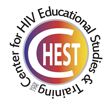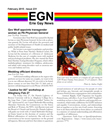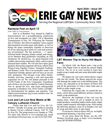New CHEST Study Has Major Implications for 'as needed' PrEP Dosing
Slowly but surely, word is spreading about Pre-Exposure Prophylaxis (PrEP), the exciting new strategy for HIV prevention for HIV-negative men and women at risk, principally in the form of the once-daily Truvada pill by Gilead. Current studies of once-daily PrEP dosing find it to be effective, with the iPrEX trial reporting 92% efficacy when taken every day. One of the biggest criticisms of PrEP has been that asking people who consider themselves otherwise healthy to take a pill every day is an unrealistic expectation. Scientists are currently studying if less frequent Truvada dosing is still effective. Earlier this year, for instance, an extension phase of the iPrEx study found that those who took Truvada at least four times a week still avoided infection. More recently, the IPERGAY study has stopped giving placebo treatments ahead of schedule because of the high effectiveness of PrEP taken on an "as needed" schedule. Rather than ask participants to take the pill every day, IPERGAY had participants take two pills up to 24 hours before having sex, one pill in the 24 hours after sex, and an additional pill 48 hours after. This dosing may be less burdensome than daily pill taking, but it demands further behavioral research on how often and how accurately individuals can predict when they will have sex, and then adhere to the guidelines of their regimen appropriately. Other less-than-daily dosing strategies are also currently being tested, including the ADAPT trial.
"We may find that alternate dosing strategies work, especially ones where someone is expected to take a pill before they have sex. But the strategy will only work for gay and bisexual men if they can actually predict when they will have sex," said Dr. Jeffrey Parsons, lead researcher on a new study by the Hunter College Center for HIV/AIDS Educational Studies and Training (CHEST). Parsons and his team analyzed behavioral data on gay and bisexual men's sexual practices and behaviors. This included using an online daily diary that asked men to predict whether they would have sex the next day, and then following up to see whether or not they did for a total of 30 days each. This was a unique sample, in that they were all highly sexually active, with men reporting an average of nearly 13 male partners in the 6 weeks prior to enrollment. Given the sheer frequency of their sexual behavior, highly sexually active gay and bisexual men would be ideal candidates for PrEP.
"Interestingly, we found that gay and bisexual men were not very good at predicting when they would have sex. They often overestimated their likelihood of having anal sex with casual partners." said Parsons. "Instead, we found that they were much better at predicting when they wouldn't have sex," he continued. So, basically, even if a guy is sure he is going to get laid, chances aren't much better than flipping a coin. On the other hand, when a guy is certain he won't have sex, chances are, he's right!
For example, according to the study's modeling, even when men predicted that they were 100% likely to have sex the next day, they only sealed the deal 59% of the time. In comparison, when men believed they had a 0% chance of having sex the next day—which only happened 14% of the time!—results showed they were right 96% of the time.
These findings may seem intuitive, especially for gay and bisexual men who've ever been on the prowl, but they illustrate the fact that gay and bisexual men may not get a lot of warning time for taking doses of PrEP prior to sex. The problem here is that gay and bisexual men are likely to miss necessary pre-sex doses if they are required to anticipate sex too far in advance or if they're relying on the likelihood of sex being high before taking a dose. "Should event-based dosing prove equally effective, our findings have implications for how providers talk to their patients about PrEP," said Parsons. Rather than only taking a pre-sex dose when they think they will have sex, the data suggest counseling the opposite—providers might consider counseling men that they should take a dose of PrEP every day unless they think the chances of sex within the next 24 hours are 0%, in which case the dose could be skipped. With the estimated retail cost of Truvada is $25.86 per pill, this study suggested that even among this sample of highly sexually active men, this would result in more than 50 days of doses that could be safely skipped each year, leading to a cost savings of more than $1,300 per year.
Although these findings provide some guidance for event-based dosing, ultimately more behavioral research on this innovative biomedical approach to HIV prevention is needed. Researchers need to understand if event-based dosing is easier than daily pill taking. And the potential for injectable PrEP (currently being tested) may make regular pill taking less critical.
About the study:
The results of this study titled, "Accuracy of highly sexually active gay and bisexual men's predictions of their daily likelihood of anal sex and its relevance for intermittent event-driven HIV Pre-Exposure Prophylaxis," by Jeffrey T. Parsons, H. Jonathon Rendina, Christian Grov, Ana Ventuneac, and Brian Mustanski will be published in an upcoming issue of JAIDS (Journal of Acquired Immune Deficiency Syndromes).
CHEST's mission is to conduct research to identify and promote strategies that prevent the spread of HIV and improve the lives of people living with HIV. We have been advocating for and working with the LGBT community since 1996. www.chestnyc.org





